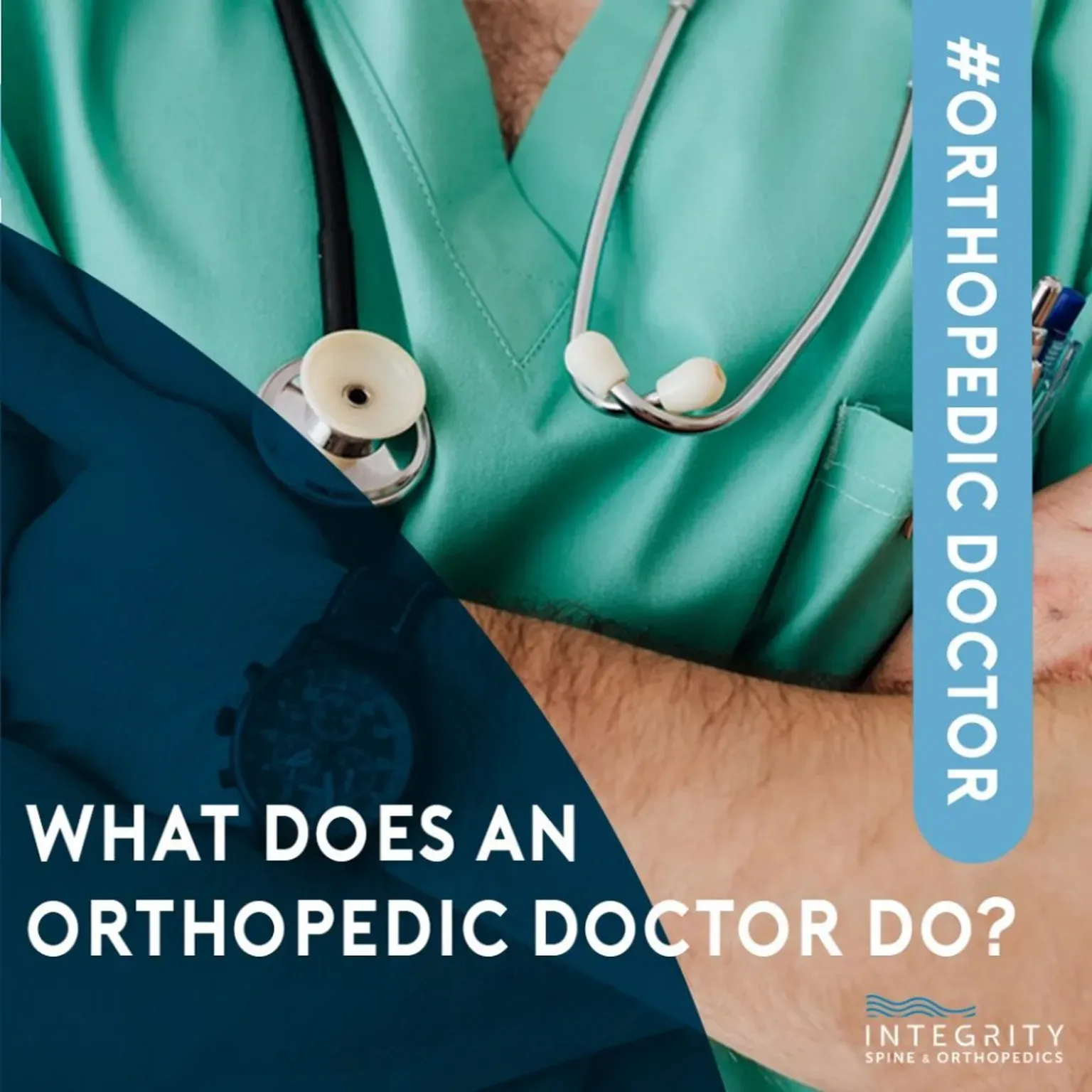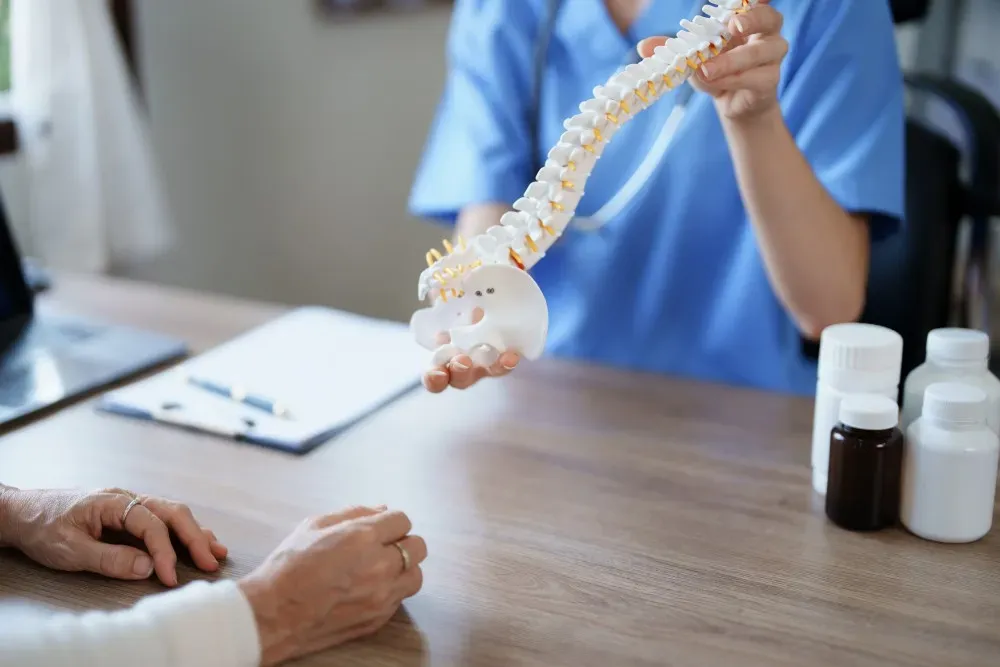Neurosurgery & Orthopedic Surgeons in Jacksonville

What Does an Orthopedic Doctor Do?
Your primary care physician is responsible for treating fevers and illnesses, evaluating you for medical conditions, and managing your overall health and well-being.
Your primary care physician is responsible for treating fevers and illnesses, evaluating you for medical conditions, and managing your overall health and well-being. But your PCP may not be the best choice if you’re experiencing joint pain and stiffness, chronic low back pain or unexplained muscle weakness and loss of mobility. In these cases, you should see an orthopedic doctor.
What is an orthopedic doctor? An orthopedist is a specialist who diagnoses and treats all diseases and injuries concerning the musculoskeletal system. That includes your muscles, tendons, ligaments, nerves, bones and joints. Keep reading to learn more about what an orthopedic doctor does.
1. AN ORTHOPEDIST TREATS JOINT PAIN
Joints are the connections between bones (like your elbows and ankles). They help support the bones and enable smooth movement when you twist, bend, sit, jump, walk or run. When joints become injured or worn out, the damage can cause a lot of pain, swelling, inflammation and loss of normal movement.
Joint pain is a very common complaint, especially in mobile or load-bearing joints like the shoulders, hips, knees and spine. While acute joint pain from an injury usually resolves on its own within a few weeks, see an orthopedist if you’ve been living with pain for several months.
The leading cause of joint pain is arthritis, a condition that occurs when the protective cartilage covering the ends of joints wears away. Over time, arthritis causes degenerative damage that affects the entire joint — the cartilage, bones, and connective soft tissues. This type of damage can significantly impact your mobility and quality of life as it progresses. If your joint pain is accompanied by morning stiffness, swelling, tenderness or loss of joint range of motion, your orthopedic doctor will examine you for arthritis.
2. AN ORTHOPEDIST TREATS BACK AND NECK PAIN
Almost everyone has experienced back or neck pain at some point in their life. Even a minor backache can cause painful movement and an inability to work productively. Back pain is one of the leading reasons people call out sick to work. Tight or strained soft tissues, whiplash, a herniated disc, arthritis, degenerative disc disease and spinal stenosis are all common causes of back and neck pain. Without treatment, any of these conditions could lead to chronic pain and symptoms. If you’ve been living with severe pain, decreased movement, or pain accompanied by numbness or weakness, it’s time to see an orthopedist for an evaluation.
3. AN ORTHOPEDIST TREATS SPORTS INJURIES
Playing sports is a great form of exercise, but sporting activities can also lead to painful and debilitating injuries from a high-impact collision, a direct blow, improper form or repetitive movement stress. Tendon inflammation and injuries, ligament tears, fractures, dislocations, and rotator cuff tears are all common sports injuries.
You should never ignore a sports injury. Failing to treat an injury, or jumping back into sports before an injury has fully healed, can cause an acute problem to become a chronic issue that prevents you from participating in the sports you love. Luckily, when you see an orthopedic doctor, you’ll receive the care and treatment you need to get back in the game as soon as possible.
4. AN ORTHOPEDIC DOCTOR HELPS YOU REHABILITATE AND RECOVER
An orthopedist doesn’t just diagnose you with a condition and send you on your way. Once a diagnosis is made, your doctor will create a treatment plan to help you rehabilitate and recover. Depending on your specific condition, treatment goals could be:
- Regaining strength, flexibility, range of motion and endurance following an acute injury, fracture or surgery
- Reducing pain and preserving mobility to slow the progression of chronic conditions
- Learning exercises, stretches and strategies to prevent future injuries
Orthopedic doctors have a variety of non-surgical and surgical treatment tools at their disposal. Common non-surgical treatments include pain management, medications, physical and occupational therapies, injections, weight management and lifestyle changes. In some cases, your orthopedist may recommend surgery to treat your injury.
5. AN ORTHOPEDIC DOCTOR PERFORMS SURGERY
There are many reasons your orthopedist might recommend surgery: to repair a torn ligament or tendon, to set a broken bone, to remove a herniated disc that’s pressing against a spinal nerve and causing pain. Today, not all surgeries are long, invasive and require a hospitalization. In cases of a severely torn ligament or tendon, you may be a candidate for minimally invasive arthroscopy. In cases of a herniated spinal disc or spinal stenosis, you may be a candidate for minimally invasive spine surgery to relieve pressure in the spine. Minimally invasive procedures require smaller incisions and cause less soft tissue damage. Many minimally invasive procedures can be performed on an outpatient basis.
Your orthopedic doctor will always walk you through your options and the pros and cons of each so that you can make an informed decision about your treatment.
INTEGRITY SPINE AND ORTHOPEDICS TREATS BACK, NECK, SPINE AND JOINT PAIN
We hope this blog helped answer your question: what is an orthopedic doctor? At Integrity Spine and Orthopedics, our board-certified orthopedic surgeons treat a wide range of soft tissue, spine, bone and joint conditions and injuries. Whether you’re suffering from an acute injury or chronic pain, we have the orthopedic care, pain management and surgery services to help you to get back on your feet and back to doing the activities you love.
We have a convenient clinic located in Jacksonville, FL. Please call us or reach out online to schedule your first appointment.




